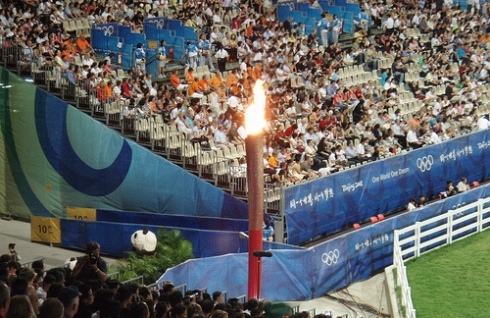Understanding the urban development benefits that come from global events is best illustrated by what has been achieved by selected cities in the past and what is planned for the future.
Hosting global events is truly back on the map as an acceptable way to promote investment and internationalisation, and events are competed for by the world’s top cities and by the fastest emerging nations. In a 5 year period we have seen London, New York, Tokyo, Paris, Madrid, Shanghai, Beijing, Rio, Sao Paulo, bidding for, and hosting, events, and Russia, China, India, Brazil, South Africa will all have hosted their first global events within the same decade. Global events work in the global era.
Moreover, the competition to host the 2012 Olympics was the most intense ever. London’s eventual victory over Madrid, Paris, New York, and Moscow, emphasized the notion that such global games are for leading global cities to host, gave the games themselves a boost, and ensured that Rio, Chicago, Madrid, Moscow and others would line up to bid for the 2016 hosting rights. Rio will be great hosts, and as Brazil bids to host a super six years events starting with the World Cup in 2014 and ending with the EXPO in 2020 (where Sao Paulo is a candidate city) the exposure will be incredible.
We can look at 4 kinds of events:
Trade Fairs and Exhibition Events – The EXPO and others
Cultural Events – The Capital of Culture and others
Sports Events – The Olympics and others
Political Summits and Conference Events – `G8, Earth Summits and others
These four groups represent the broad range of events that cities and nations now seek to host, although there is great diversity within each group and substantial differences between them.
Whilst there is emerging knowledge of how to use events to achieve a lasting legacy and a vast literature of case studies and analysis of what works and what doesn’t work is now available, there is still some cynicism about whether the costs are justified by the benefits, and whether, if the same amount of money had been spent in another way it wouldn’t have been better.
However, both public and private sectors consistently support the use of these major events to help bring forwards new developments in cities.
The public sector likes hosting global events because:
- Urban development and investment are long-term activities. Hosting international events helps to provide milestones and staging posts which help cities to accelerate through cycles of development and investment in specific locations. But global events will only help if they are not managed as a one-off but are used to drive implementation of existing long term urban development strategies.
- Such events turn certain specific locations into national priorities for a specific periods of time and allow a concentration of efforts and a scale of public investment that would not ordinarily be possible.
- Events also provide a short-term boost in areas of construction and tourism (for example) which bring people into the labour market and small firms into new supply chains.
- Events can also stimulate greater participation and aspiration of citizens and have a major impact on community activism and self-help initiatives.
- Global events offer new identities and a fresh start for places that may have developed a poor image or reputation and need to find a new path.
- Events of this kind can strengthen local capacity, improve confidence, and build the ability to manage change and development better. It is important to have other major developments and projects in train to maintain momentum after the event.
The private sector likes to invest in areas which are hosting events because:
- The immovable deadlines and other external requirements provide discipline and certainty which reduces private sector risks, and means that investment projects make work better with the grain of private sector discipline.
- The areas that host events are generally the focus of major infrastructure renewal and modernisation which encourages business efficiency and market access.
- The areas used will usually have under-developed land and property markets and may be more affordable than other areas in the same cities, offering great potential for rapid value creation.
- Major events will provide extensive brand-building and media exposure for the area and its businesses which can be leveraged as free marketing.
- Major events will shape a local or regional investment market for several cycles into the future and offer ‘first-mover’ advantages to those who invest at the start.
- Hosting major events of this kind can strengthen local supply chains and improve the skills of the labour force, these are also important drivers of investment and should be nurtured and communicated to potential investors.
So, underneath the fierce competition to stage such events there appears to be 3 elements that simply can’t be bought and can only be achieved through hosting:
- Because the world comes to visit on a certain immovable date, everything is accelerated to meet this deadline and lots of inertia is avoided.
- Because the events themselves bring strong branding and visibility, the hosts experience a great opportunity for brand alignment and image renewal.
- Because the hosting locations must be a source of national pride when the event occurs they temporarily become national investment priorities, beyond the usual rules of how public finances are allocated.
No cost/benefit analysis will ever capture the value added of hosting event if it brings these game- changing elements, and cities know this when they decide to bid.
Pick the right event. Because different kinds of event offer rather different outcomes and benefit potential cities and nations must pick the right event for them.
Be bold. The greatest benefit from hosting such events comes being imaginative and using such an event to solve a problem of make a leap forwards in ways which otherwise not easy to do.
Get leadership right. Wining the right to stage the event requires great expertise in marketing and public affairs, delivering a great event requires exceptional project leadership and substantial business acumen. A wide range of leadership skills and experience are needed.
Bid well. It is essential to mount a compelling and exciting bid, even if it is unsuccessful. Many benefits can come from bidding well but losing, but nothing is gained from a bad bid.
Have a plan B. Smart cities have positive and proactive plans for both winning and losing and the ability to present both as success.
Accelerate exiting plans and priorities. Events should be used to accelerate progress on core priorities, not on side shows and things of secondary importance.
Integrate the efforts. The event must be well integrated with other many endeavours in development, planning, transport, branding and marketing. It must not be separated and unconnected.
Legacy first. The post event impact should be the guiding driver for all decisions. The legacy comes first, not an afterthought.
Legacy management. The legacy and other benefits should be managed as a project in themselves with its own leadership and resources. Too many cities get distracted by the event itself and forget about the legacy until it too late.
Make a habit of it. Hosting multiple event over a period of time increases capability and also add to the cumulative benefits. Successful cities need a longer term multiple events strategy.
More than anything globalisation has created a new rationale for these events. The events now present a unique opportunity to combine national promotion with urban development and to leverage national resources for city modernisation. This may be especially true for cities in fast growing and emerging economies, and for established cities in developed markets that want to internationalise their appeal. They also offer a unique moment for public and private collaboration because these events are both business projects and inter-governmental initiatives. In our current moment though, the potential for the hosting of global events to add a fresh dynamic to regional property and investment.
Find out more about the relationship between sports and urban development in this month’s Urban Intelligence newsletter, with new exclusive content from cities expert and blogger, Greg Clark.



